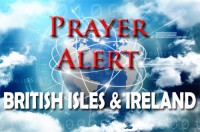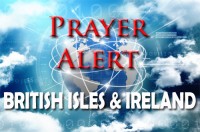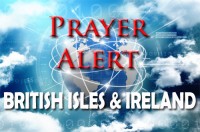Government backtracks on pay policy
The Government’s austerity policy descended into chaos on 28 June as it first seemed to suggest it would abandon its one per cent cap on public sector pay rises, then denied it. Three Cabinet ministers appeared to have been briefed that the pay cap was coming to an end as they openly talked about lifting it, and Sir Oliver Letwin, the influential backbench MP, even went into detail about how taxes would have to be increased to fund it. However, only hours later Downing Street insisted that the cap would remain in place until 2020. This reversal was blamed on the ongoing ‘war’ between Theresa May and Philip Hammond, with the Treasury reportedly demanding a retraction of the announcement. It led to speculation that the Chancellor had intended to claim credit for the policy change at his next budget. Tim Farron, the outgoing Liberal Democrat leader, said: ‘The Tories are in utter chaos. They have U-turned on their own U-turn within the space of a few hours.’
Youngest bishop to be new Primus
The Scottish Episcopal Church has elected Rt Rev’d Mark Strange, Bishop of Moray, Ross and Caithness, as Primus. Bishop Mark, 56, the youngest of the bishops, was consecrated in his current diocese in 2007. He said: ‘I am humbled by the confidence shown in me by my colleagues, and I will seek to serve the Church with love and strength. It has been 82 years since a Bishop of Moray became Primus, and I pray that I may be worthy of this trust. I will continue to serve in my beloved Highlands while I also step out into new and exciting journeys of faith in both Scotland and the wider international church.’ He takes up this role as a Primate within the Anglican Communion at a time when the General Synod of his Church has voted to permit same-sex marriage. That decision is expected to be on the agenda of the forthcoming Primates’ meeting in Canterbury, which he will attend. He is married to Jane, a teacher, and they have a son and two daughters.
Ofsted chief and ‘British values’
Amanda Spielman, who in January became head of schools’ regulator Ofsted, has vowed to continue promoting ‘British values’. Citing the recent terror attacks as evidence that a greater crackdown on different forms of extremism is needed, she said that the promotion of British values will be determined by individual inspectors, adding, ‘There isn’t a prescribed translation of it, so schools will have to work it out’. John Denning of the Christian Institute, which has consistently questioned the vague and subjective nature of ‘British values’, said Spielman’s assertions would be particularly concerning for head teachers of faith schools. He said: ‘This might encourage Ofsted inspectors to pressurise or even fail schools, based on their own subjective opinions of what British values are. Schools will remain vulnerable to inspectors’ personal biases.’ Since the Government introduced the requirement to ‘actively promote’ British values in schools in 2014, Ofsted inspectors have caused widespread problems for religious liberty in England, with aggressive questioning of teachers and pupils over their beliefs on same-sex marriage and transsexualism.
EU extends Russia sanctions until Jan 2018
The European Union formally extended its economic sanctions on Russia on Wednesday, a widely-expected step that keeps restrictions on business with Russian energy, defence and financial sectors until 31 January 2018. The sanctions were imposed in July 2014 following Russia's annexation of Ukraine's Black Sea peninsula and Moscow's direct support for separatists in eastern Ukraine. Moscow denies direct involvement in the conflict, despite NATO's assertions that its troops are supporting the rebels. EU leaders agreed to the extension at their summit in Brussels last week, after France and Germany cited no progress in efforts to negotiate an end to the conflict in eastern Ukraine that has killed more than 10,000 people since April 2014. Under the sanctions that were imposed in tandem with the United States, European companies are banned from doing business with or investing in Russia's defence and energy industries, while financial ties are severely limited. European companies cannot borrow or lend money to Russia's five main state-owned banks for more than 30 days, limiting Moscow's avenues for raising funds. Any lifting of sanctions on Russia is tied to the implementation of the Minsk peace deal for Ukraine which was negotiated by the leaders of France, Germany, Ukraine and Russia in 2015.











